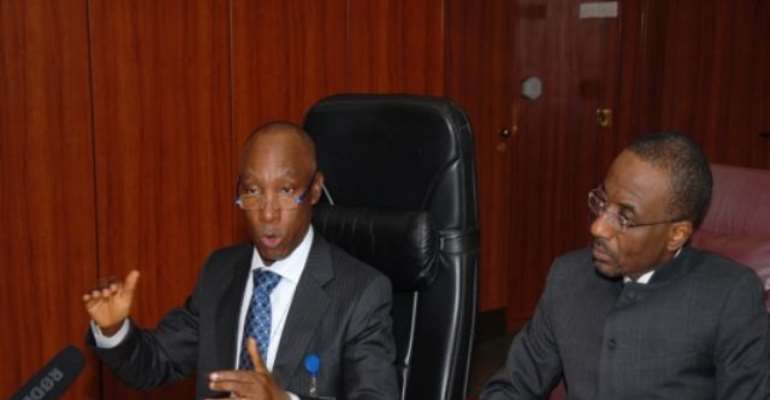Port Harcourt Refinery Starts Production

ABUJA, July 27, (THEWILL) - Efforts by the Management of the Nigerian National Petroleum Corporation, NNPC, to sustain the steady supply and distribution of petroleum products across the Country received a boost today with the news that the Port Harcourt Refinery Company is back on and has commenced supply of petroleum products to its depot in Aba, Abia State.
The Group Managing Director of the Corporation, Engr. Austen Oniwon disclosed this during a courtesy visit to the Governor of the Central Bank of Nigeria, Mallam Sanusi Lamido in his office.
Engr. Oniwon said that for the first time in a long while the nation’s three Refineries (Warri, Kaduna and Port Harcourt) are operating simultaneously and contributing effectively towards the nation’s desire to increase local refining capacity.
The news of the coming on stream of the Port Harcourt Refinery was bolstered with the announcement that the Corporation has recovered some of its important product pipelines.
"We are gradually moving towards the full recovery of some of our vital products pipelines which were seriously damaged at the height of youth militancy and pipeline vandalism. Today, we have recovered the Port Harcourt-Aba product line which conveys products from the Port Harcourt Refinery to the Aba depot. And I can tell you that we have started pumping products to Aba and they have indeed received diesel from Port Harcourt Refinery,’’ Oniwon stated.
He informed that the Corporation was working towards the restoration of the Aba-Enugu-Yola product line to extend the supply of petroleum products from the Port Harcourt Refinery to the Enugu and Yola depots.
Similarly the NNPC GMD stated that the Corporation has also recovered the Warri- Benin line which has been out for three years due to incessant vandalism. "The next phase is to restore the Benin-Ore-Suleja line to ensure that products from Warri get to the desired destination,’’ he said.
In the North, the GMD announced that products from Kaduna Refinery are being conveyed through pipeline directly to Kano while efforts are being made to activate the Kaduna-Jos- Maiduguri line.
He noted that the recovery of the pipelines has reduced the cost of haulage as products from these refineries are being transported through pipelines as primarily designed.
The NNPC helmsman added that 60% of petroleum products are transported through the pipelines saying that with the stability being enjoyed in the Niger Delta region occasioned by the post amnesty programme of the federal Government, the good old days are back in the Oil and Gas industry.
Engr. Oniwon noted that for the downstream sector to grow the economy and attract investors there was every need for the Federal Government to commence the full implementation of the deregulation policy without further delay.
He argued that except the Federal Government is pragmatic by ensuring the removal of fuel subsidy, the downstream sector will continue to generate imbalance for the economy.
The NNPC helmsman expressed the readiness of the Corporation to reposition all its business frontiers in order to sustain the revenue accruing to the Federal Government coffers through the Oil and Gas sector.
Responding, the Governor of the CBN, Mallam Sanusi Lamido said that there was no alternative to deregulation. He observed that except the Federal Government implement the policy immediately; the country may be heading for domestic financial crisis.
"Oil is the main source of revenue to the Federal Government and we cannot afford to be paying huge amounts on fuel subsidy. Every year, we offer bond to offset debt owed as a result of fuel subsidy. This subsidy regime is simply too expensive for us to maintain as a country," Lamido opined.
 
